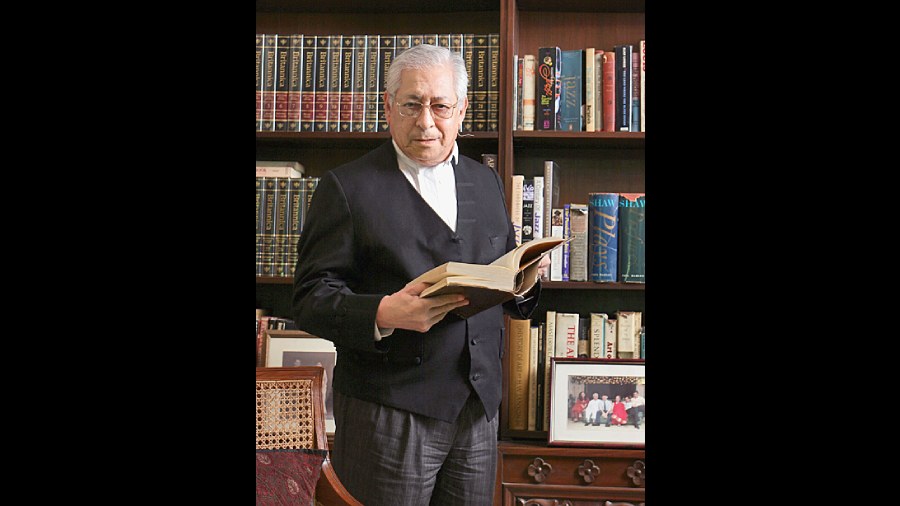Book: Soli Sorabji: Life And Times — An Authorized Biography
Author: Abhinav Chandrachud
Publisher: Penguin
Price: Rs. 799
From the triumphs and errors of those who came before us, and the course of history that their efforts helped shape, we learn about how our own choices can shape the history that is yet to be, however minor a role we may play in its making. This is no less true for the lives of lawyers than it is for any other player in a democracy’s dramas. And it is certainly true for the life of Soli Sorabjee, two-time attorney-general and eminent jurist. We lost Sorabjee to Covid-19 in 2021, but Abhinav Chandrachud has gifted us with an illuminating biography that sketches his life right back from his grandparents’ times down to the early 2000s.
I use ‘sketches’ deliberately because by any account, there are far too many stories to tell. Chandrachud’s brief book tries to touch upon a wide range of aspects: from landmark cases on Indian constitutional law to little-known cases that were important in Sorabjee’s career, from writings on press freedoms during the Emergency to newspaper columns and TV appearances later in life, from the regular spill-overs of Indian politics into courtrooms to personal tastes in poetry and music, from airplane accident inquiries and UN appointments to the sense of humour and mischief that round off a human figure. In covering this range of subjects in a limited number of pages, the biography ends up losing depth in parts. There are so many momentous legal proceedings mentioned that the sheer significance of each is glimpsed only passingly. The writing treads lightly on Sorabjee’s personal life, neither exploring the full richness of the family and professional relationships he shared nor entering into any controversies on private matters.
For readers from the legal community, the pages are littered with many pointers on how to develop one’s practice in courts. One learns about the importance of having a broad set of sources for clientele, of listening to a judge’s questions carefully, of treating one’s juniors courteously, and of maintaining a degree of independence from one’s clients. Sorabjee cuts a striking figure as a legal professional whose ability is so formidable and integrity so sound that he is appointed by political parties he has criticised in public and confronted in court. Another image that emerges is of a lawyer who showed earnest concern for constitutional rights and fought for liberty and free speech in times when these were under siege.
Chandrachud’s writing may seem more concerned about these professional aspects than about bigger socio-political questions or moral dilemmas but the book, written in clear, accessible and engaging prose and littered with many titbits and themes, should be of great interest to readers from any field, especially if they are interested in India’s post-Independence history or at all curious about the workings of its legal system.










